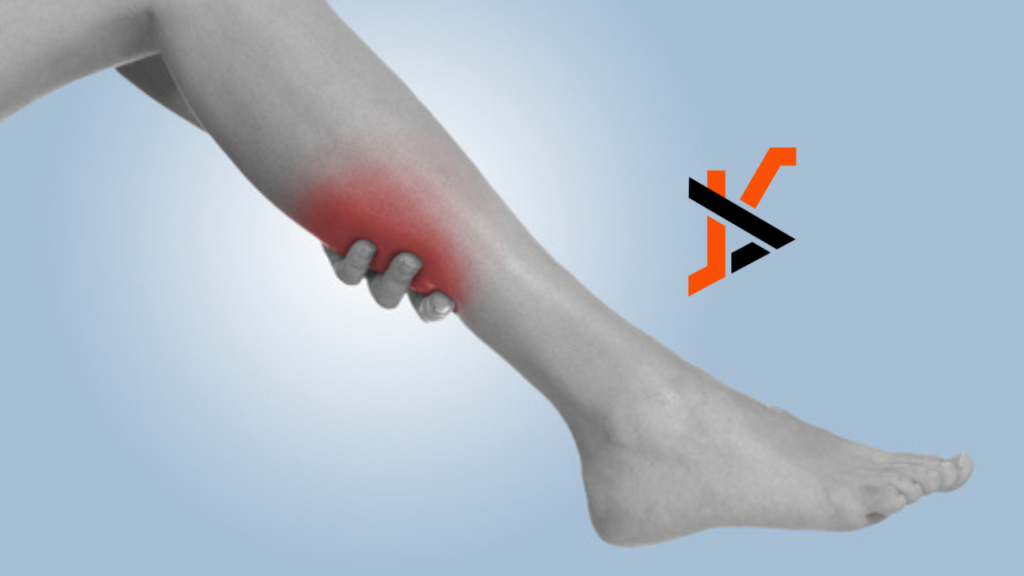Have you ever wondered why muscle cramps in your legs seem to strike at the worst times? Have you experienced that sudden, intense pain that leaves you clutching your calf in the middle of the night? These painful muscle contractions can be both mysterious and excruciating. But what causes them? Let’s dive into the science behind these cramps and explore how to prevent and treat them.
What Causes Muscle Cramps in Legs?
Understanding Muscle Contractions
To the question of what causes leg cramps, it could be said that- these cramps are involuntary contractions that often affect the calves. These cramps can last from a few seconds to several minutes and are most common during the night, disrupting sleep and causing discomfort.
Common Triggers
So, what causes these painful spasms? Several factors can contribute:
- Dehydration: Electrolyte imbalances can result from consuming insufficient amounts of water.
- Overuse: Intense physical activity, especially without proper stretching, can overwork the muscles.
- Inactivity: Sitting for long periods can cause muscles to contract unexpectedly.
- Nutrient Deficiencies: Lack of essential minerals like potassium, calcium, and magnesium can lead to cramps.
The Role of Electrolytes
Importance of Hydration
Minerals called electrolytes support both muscle and fluid balance. When dehydrated, your body loses electrolytes, making muscles more prone to cramping. Drinking enough water and consuming electrolyte-rich foods can help prevent this.
Key Electrolytes
- Potassium: Found in bananas, potatoes, and spinach, it helps prevent muscle fatigue.
- Calcium: Essential for muscle contraction and relaxation, available in dairy products and leafy greens.
- Magnesium: Found in nuts, seeds, and whole grains, it supports the function of muscles and nerves.
Preventing the Cramps
Staying Active
Regular exercise keeps muscles healthy and flexible. Stretching before and after workouts can prevent overuse injuries. Including exercises like yoga or pilates helps increase the strength and flexibility of your muscles.
Proper Nutrition
A healthy, vitamin—and mineral-rich diet is essential. Eat enough fruits, veggies, and lean meats. Supplements may also be helpful, but before beginning any new routine, it is best to speak with a healthcare provider.
Treating the Cramps
Immediate Relief
When a cramp strikes, there are a few immediate steps you can take:
- Stretching: Stretch the impacted muscle gently to release the cramp.
- Massage: Lightly massage the muscle to increase blood flow and reduce tension.
- Heat and Cold Therapy: A warm towel or ice pack can help soothe the muscles.
Long-Term Solutions
For those who frequently suffer from muscle cramps in the legs, long-term strategies include:
- Regular Exercise: Maintain a consistent exercise routine.
- Hydration: Throughout the day, sip a lot of water.
- Balanced Diet: A balanced diet should emphasise consuming a lot of important nutrients.
The Science behind Such Cramps
How Muscles Work
Muscles are made up of fibres that contract and relax to create movement. The nervous system controls this process, sending signals to the muscles. When these signals are disrupted, the muscles can contract involuntarily, leading to a cramp.
Why Cramps Happen
Muscle cramps can occur when there is an imbalance between the signals that the muscles receive and their capacity to respond. This can be caused by a number of things, such as vitamin shortages, misuse, and dehydration. Being aware of these triggers can avoid and manage cramping.
The Impact of Lifestyle on Leg Cramps
Exercise and Physical Activity
Maintaining healthy muscles requires regular physical activity. However, overexertion without proper preparation can lead to cramps. It’s important to gradually increase the intensity of your workouts and ensure that you are properly hydrated and nourished.
Diet and Nutrition
Your diet has a big impact on the health of your muscles. Muscle cramping in the legs may be more common in those whose diet is deficient in vital nutrients. Incorporating various foods rich in vitamins and minerals can help prevent this. Additionally, staying hydrated is crucial for maintaining electrolyte balance.
When to Seek Medical Advice
Persistent Cramps
While occasional leg cramps are usually harmless, frequent or severe cramps may indicate an underlying health issue. Conditions like peripheral artery disease, diabetes, or nerve disorders can cause chronic cramps.
Professional Advice
Seek medical advice if your quality of life is negatively impacted by muscle cramping in your legs. They can offer a comprehensive analysis and suggest the best course of action. Certain circumstances may call for the use of medication or medical attention.
The Importance of Sleep
Nighttime Cramps
Leg cramps often occur at night, disrupting sleep and causing discomfort. Maintaining a routine sleep schedule and creating a pleasant resting environment can reduce the frequency of midnight cramps.
Sleep and Muscle Recovery
Rest is necessary for muscle repair. The body heals and regenerates muscle tissue as you sleep. Getting enough rest is crucial for overall muscle health and can help prevent cramps.
Muscle cramps in the legs are a common yet painful experience that can disrupt daily life. Understanding what causes leg cramps is the first step in preventing and treating them. You can always lower the frequency and intensity of these excruciating contractions by maintaining hydration, exercising frequently, and eating a nutritious, balanced diet. Remember, if cramps persist, seeking medical advice is crucial.

